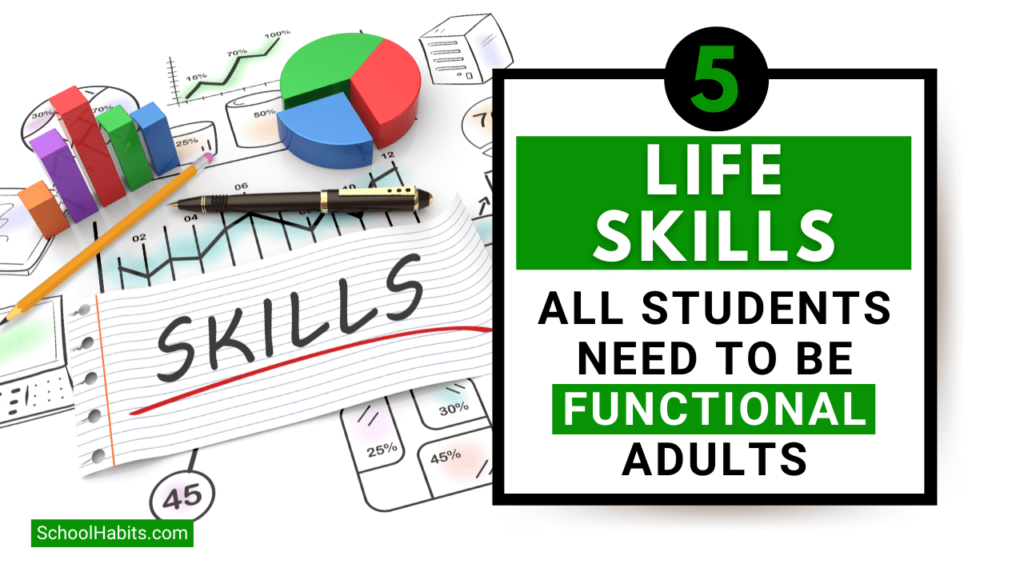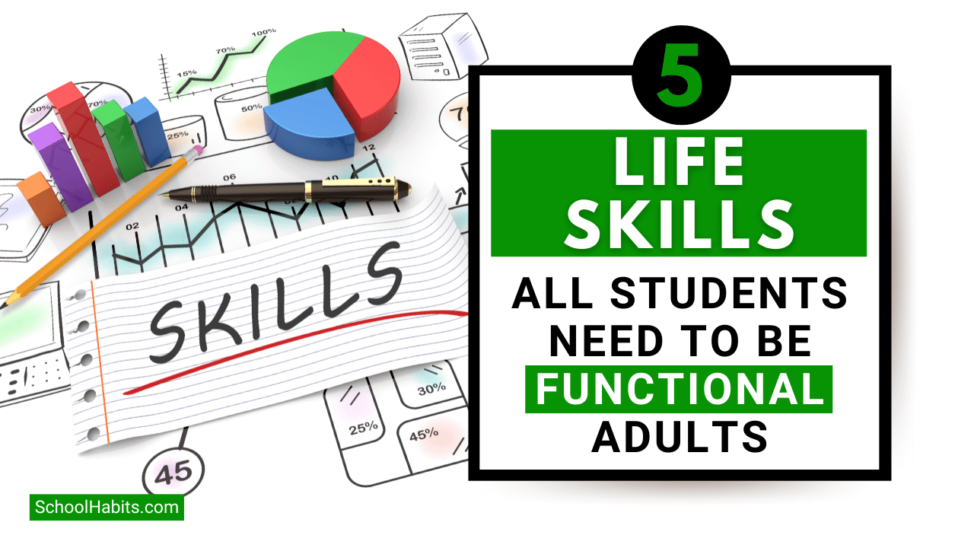
By Katie Azevedo, M.Ed.
In high school, I learned how to hem my own pants (a handy skill considering I’m 5’2”). In fact, I learned many life skills outside basic content areas, skills that smoothed my transition to being a functional adult. Some of these skills I learned from my parents, and some I learned from a now-extinct class, home economics. Regardless, I began college and early adulthood prepared with basic life skills that made … well, life, easier.
I don’t know if today’s students are prepared sufficiently with basic life skills. But having taught for over 18 years, I’m in a position to comment on what skills I see our students lacking, and the following five life skills make the list.
5 life skills all students need to be functional adults
The following list could contain 100 points. I struggled to whittle it down to five. In addition to the life skills listed below, I considered adding stress management, coping with failure, job searching, exercise basics, and home purchasing/renting. Oh, and walking up and down staircases on the correct side. Kidding on the last one … but not really.
PS: If you’re a student and you’re curious about student internships, here are the 3 most important skills for student internships.
1. How to handle basic life administration
There is no escaping administrative tasks. Such tasks, outlined below, often begin in high school and increase in scope and urgency in adulthood. (Here is a list of important student admin.) Knowing how to handle life admin is essential to living as a functional adult.
Key administration tasks for students to learn before graduation include the following (although, again, the list could be much longer):
- Email management: Having a system for checking it, responding timely and appropriately, managing inboxes, etc. Here is a crash course in email management.
- Making appointments (and knowing that they need to be made): Students should know how often to go to the dentist and have an annual physical, as well as how to make, remember, and show up to these appointments. Students should also know how and how often to schedule basic maintenance work (oil changes, etc.). Calendar skills are key.
- Organizing papers: Adulthood brings paper piles. A key life skill is paper management. This includes knowing how to reduce papers (online automation, canceling subscriptions, removing names from marketing lists), store papers (filing systems, tax-document storage), and extract information from papers so that the physical paper can be thrown away.
- Keeping living spaces hygienic: Cleaning and tidying skills include how to clean and disinfect surfaces, dust, vacuum, change air filters, do laundry, wash sheets, clean microwave and appliances, etc. Here’s how to clean school supplies. Also: Today’s PSA bonus is you can’t put metal in the microwave.
- Automobile maintenance: How to pump gas, how often to change oil, what to do in case of a flat tire, insurance basics, inspection stickers, etc.
- Food: Food expiration rules, food inventory skills, basic food prep, nutrition, how to grocery shop, and cooking.
2. Resourcefulness
A critical life skill for students and adults is resourcefulness. Resourcefulness is about knowing how to figure things out. What do you do when you’re confused? How do you figure out hard things? What do you do when you get stuck? What do you do when you don’t know something? I also consider conflict resolution a matter of resourcefulness, although I also list it under communication below. I write about resourcefulness here.
3. Communication
Students roll their eyes when they hear “communication skills” because it’s a vague term that’s thrown around in excess. But for real, knowing how to get your point across is key to doing just about anything connected to school, work and life. (The only three categories there are, really.)
Communication skills include:
- Speaking clearly and concisely
- Writing clearly and concisely
- Phone etiquette
- Email etiquette / how to write emails
- Self-advocacy
- Speaking up and disagreeing in groups
- Conflict resolution
- Presenting information (Here are 31 tips for class presentations)
4. How to learn things
For obvious reasons, it’s best to acquire this skill while in school. Regardless, if you don’t have basic strategies for knowledge acquisition, you’ll have a hard time securing meaningful employment and developing yourself. Learning things is hard. But there’s a reason we call study skills, study skills.
5. Money management
Nope, I will not preach the importance of balancing a checkbook. I’m not that out of touch. But students need to understand basic financial concepts before graduating so that they can avoid money trouble in adulthood.
Students should learn the following fundamental financial skills, at the very least:
- Debit cards vs. credit cards
- how credit works (including credit scores and why it matters)
- Credit card responsibilities (penalties, interest rates, etc.)
- Retirement and investment basics (401Ks, etc.)
- Saving vs checking accounts
- Tax basics (at a minimum, that yearly taxes is a thing, and who to hire for tax prep)
These five life skills for students aren’t often taught in school. I wish they were. Or at the very least, I wish schools offered elective courses that students could take if parental instruction in these areas is insufficient. To be fully functioning adults, our students need more than content-area instruction in algebra and physics: they need life skills. If you don’t know any of the skills listed here, see Tip #2.
If you’re a college student, here are the 4 most important skills you need in college.
I also like this list of life skills for students. It’s very specific, which makes it helpful.

